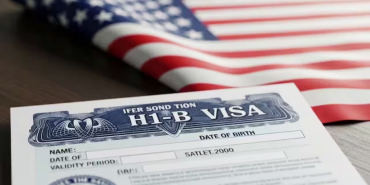Could Your Marriage Lead to Deportation? How North American Officials Are Detecting Immigration Fraud

On Valentine’s Day, Canada’s Immigration, Refugees, and Citizenship Canada (IRCC) issued a significant warning regarding the issue of marriage fraud, cautioning Canadian citizens and permanent residents about the risks associated with entering "marriages of convenience."
These fraudulent unions are often orchestrated to facilitate immigration for sponsored spouses or common-law partners, undermining the integrity of the immigration process. The IRCC's statement underscores the increasing scrutiny and tightening of immigration targets designed to detect and prevent such deceptive practices. It highlights the severe legal ramifications for individuals involved in marriage fraud, urging Canadians to carefully evaluate the authenticity of their relationships, particularly in instances characterized by rushed weddings or the history of multiple prior partnerships.
The challenge of marriage fraud is not confined to Canada. The United States faces similar concerns, as noted by Jessica M. Vaughan, Director of Policy Studies for the Center for Immigration Studies, during a US House Judiciary Committee hearing in January 2025. Vaughan articulated that the marriage-based immigration framework is particularly susceptible to fraud, owing to lax oversight and various loopholes that permit unqualified applicants to gain immigration benefits and a pathway to citizenship. To combat this ongoing issue, Vaughan proposes a series of measures aimed at strengthening the immigration system.
These include implementing rigorous fraud assessments across all visa programs, ensuring periodic reports to Congress regarding fraud trends and anti-fraud initiatives, and mandating in-person interviews for marriage-based petitions. Additional recommendations involve setting minimum age and self-sufficiency requirements for both sponsors and applicants, offering training programs for officials responsible for issuing marriage certificates, establishing a fraud tip line, and creating a dedicated investigative unit focused on marriage fraud.
Furthermore, strategies to support the US citizens and lawful permanent residents who believe they have fallen victim to fraudulent marriages were also advocated. Recent cases of marriage fraud underscore the prevalence of this issue and the associated legal consequences. In 2023, Vikrant Chauhan, an Indian national living in Chicago, pleaded guilty to charges of marriage fraud and received a five-year prison sentence for his involvement in a sham marriage intended solely to obtain a Green Card. Other significant cases include a California-based marriage fraud agency that orchestrated numerous fictitious marriages and fabricated domestic abuse claims to secure green cards for its clients.
In its commitment to thwarting 'marriages of convenience,' the IRCC employs a range of investigative measures, including document verification, home visits, and interviews with both sponsors and applicants. Engaging in marriage fraud carries serious consequences, such as potential legal prosecution, a five-year ban from entering Canada, and deportation. Both Canada and the US are taking decisive actions to address marriage fraud, aiming to protect the integrity of their immigration systems.














Add new comment